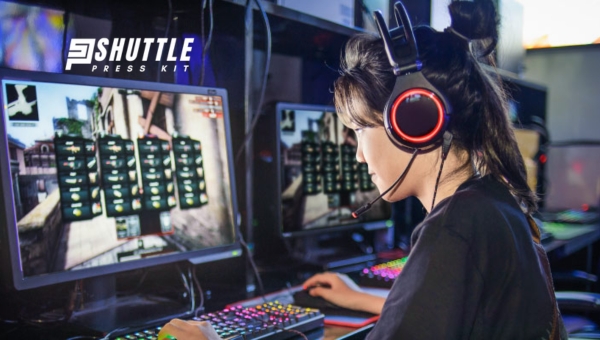I’ve always been amazed by how video games can transport us into different worlds. But what if I tell you that even with satellite internet, you can dive into this vast universe of gaming? It might sound incredible, but yes, you can enjoy gaming with satellite internet! Imagine the endless adventures waiting for you, despite being miles away from a city or in the comfort of your own rural home.
Getting perfect gameplay when using satellite internet is all about managing expectations and optimizing your setup. While it’s true that satellite connections often face higher latency compared to other types of internet services, picking the right games is crucial. Opt for ones that are less reliant on split-second reactions—like strategic games or turn-based RPGs—and you’ll find yourself immersed in rich storylines and strategic battles without frustration!
Optimal Internet Speed Requirements for Online Gaming
Achieving a smooth and responsive gaming experience hinges significantly on your internet connection’s speed. While the demands vary across different types of online games, understanding the baseline speeds can help ensure gameplay is not hindered by lag or disconnection issues.

Here’s a concise guide on the necessary internet speeds for enjoyable online gaming:
- Minimum Download Speed: Aim for at least 3 Mbps download speed. This is often sufficient for most online games but staying above this threshold ensures smoother gameplay.
- Minimum Upload Speed: A minimum of 1 Mbps upload speed is recommended. Since gaming often involves sending data back to the server, such as character movements and in-game actions, adequate upload speed is crucial to avoid delays.
- Ideal Ping Rate: Strive for a ping rate (latency) lower than 100ms, though optimal gaming experiences are noted below 50ms. Latency measures the response time between sending a request and receiving a response from the gaming server—a lower number means less delay in action recognition.
By meeting these specified internet speeds and maintaining low latency, players can significantly minimize game disruptions caused by lagging or slow response times, contributing to an overall better online gaming adventure.
Also Read: Starlink Volcano Mount Guide: Easy DIY Installation Tips
Feasibility of Online Gaming Over Satellite Internet
Determining if satellite internet can support online gaming requires understanding the challenges and limitations posed by satellite connections, such as latency. Despite these hurdles, certain games perform better than others on such networks.

Here’s a breakdown of what you can expect when gaming over satellite internet:
- High Latency Issues: Fast-paced multiplayer games like Fortnite or Call of Duty may experience significant lag due to the inherent delay in satellite transmission. This lag affects the responsiveness of the game, making competitive play challenging.
- Suitable for Slower-Paced Games: Turn-based games or those not requiring real-time reactions tend to fare well on satellite connections. Games within franchises like Civilization that employ a more strategic, less Twitch-based gameplay style are ideal.
Also Read: Low Capacity vs High Capacity Starlink: Optimize Your Choices
Minimizing Latency for Enhanced Gaming on Satellite Internet
Satellite internet, with its long-distance signal travel, inherently faces the challenge of latency, which can significantly impact online gaming experiences. High latency can cause delays between a player’s action and the game’s response, leading to a disadvantage in real-time gameplay.

However, there are effective strategies to mitigate these issues and enhance your gaming sessions.
- Opt for a Wired Connection: Using an Ethernet cable to connect your gaming console or PC directly to your internet router ensures the most stable connection possible, reducing latency more effectively than Wi-Fi can.
- Pause Background Downloads: Ensure that no other devices or applications are downloading software updates or content in the background while you’re gaming. These activities can consume bandwidth and increase latency.
- Close Unnecessary Applications: Before launching your game, close any programs or apps that might be using your internet connection. This includes streaming services, web browsers with multiple tabs open, or cloud-syncing services.
- Reboot Your Router Periodically: Regularly restarting your router can refresh your internet connection and potentially improve performance. Simply unplug the power cable from your router for 30 seconds before plugging it back in.
- Select Game Servers Wisely: Whenever possible, choose a game server that is geographically closest to you. The shorter distance reduces data travel time between the server and your satellite connection, which can help diminish overall latency.
By implementing these steps diligently before engaging in online gaming over satellite internet connections you may witness noticeable improvements to lag times even within this setup’s inherent limitations
Also Read: Starlink Dimensions Simplified: Nail Your Satellite Setup
Pros and cons of gaming with satellite internet
The product in question is recognized for its superior reliability compared to traditional broadband services, primarily because it involves fewer ground installations, leading to a reduction in potential service disruptions. This makes it an attractive option for those looking for dependable internet connectivity.

Here’s a table summarizing the advantages and disadvantages based on the provided reference:
| Pros | Cons |
|---|---|
| Widely available in rural and remote locations where other internet services are limited. | Can be costly, which may not make it accessible to everyone. |
| Fewer equipment-related outages due to minimal ground installations. | Susceptible to interruptions caused by severe weather conditions. |
| Capable of managing high user volume without compromising on speed or quality during peak times. | Potential issues with high latency and restrictive data caps depending on the provider. |
This table provides an overview of the key aspects of using satellite internet for gaming purposes, highlighting its strengths and limitations.
Comparison Between Best Satellite Internet Providers For Gaming
When looking for the best satellite internet providers, Viasat stands out for its compelling offer of unlimited high-speed satellite internet with no data caps, starting at $99.99 per month.

It compares favorably with competitors like Starlink and HughesNet, offering unique benefits such as no required annual contract and professional installation for a seamless setup experience.
| Feature | Viasat | Starlink | HughesNet |
|---|---|---|---|
| Monthly Plan Price | From $99.99 | From $120 | From $74.99 |
| Data Caps | None | None | None |
| Speed Range (Mbps) | 25-150 | 25-220 | 50-100 |
| Annual Contract Required | No | No | Yes |
| Professional Installation | Yes | Optional | Yes |
| Live Customer Care | Yes | Optional | Yes |
| Built-in Wi-Fi | Yes | Yes | Yes |
This table offers a straightforward comparison to help consumers make an informed decision when choosing their satellite internet provider, examining key features such as pricing, speed capabilities, contract terms, and additional services.
Also Read: Starlink vs HughesNet: Which Wins the Satellite Battle?
Frequently Asked Questions
Can I play online games with satellite internet?
Yes, you can enjoy online gaming with satellite internet, though some high-speed, real-time games may experience latency issues.
Will satellite internet latency affect my gaming experience?
Latency, or lag, common in satellite connections, can impact real-time online games, particularly fast-paced shooters or competitive esports.
How can I improve my gaming experience on satellite internet?
Optimizing your network settings, playing during off-peak hours, and choosing games with lower latency requirements can enhance your experience.
Is it possible to use voice chat and play multiplayer games on satellite internet?
Yes, voice chat and multiplayer functionality are possible, but users may encounter delays or reduced quality due to the inherent latency in satellite connections.
Conclusion
Gaming with satellite internet presents unique challenges but also viable solutions for remote gamers. With advances in technology, latency issues — once a major stumbling block — are becoming less of a deterrent. Providers now offer options specifically tailored for gaming needs, emphasizing lower ping times and more reliable connections. It’s essential to select the right plan and potentially consider add-ons or specialized equipment designed for gaming.
Additionally, optimizing your gaming setup and choosing games that are less latency-sensitive can significantly enhance your experience. While satellite internet may not yet rival the speeds of fiber-optic services, for many, it represents a substantial improvement in accessibility, opening up the world of online gaming to previously underserved areas.
